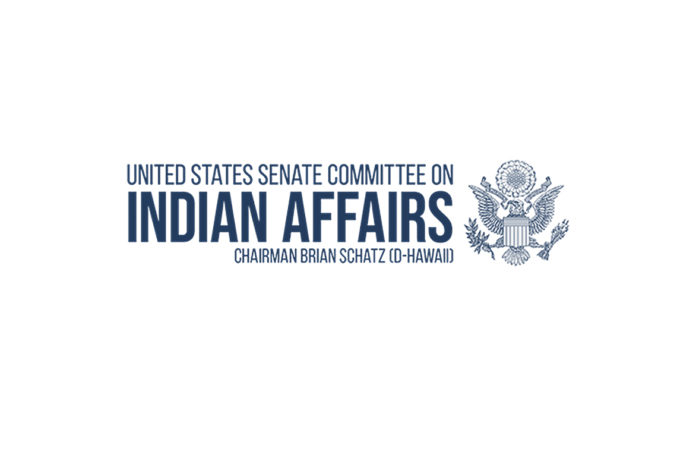WASHINGTON, D.C. – U.S. Senator Brian Schatz (D-Hawai’i), Chairman of the Senate Committee on Indian Affairs, led committee passage of S.989, the Native American Language Resource Center Act of 2021, and S.1402, the Durbin Feeling Native American Languages Act of 2021, named after Cherokee linguist and Vietnam veteran Durbin Feeling, who passed away in 2020. The committee previously received testimony on these two bipartisan bills during an oversight and legislative hearing this past May.
In his opening statement, Schatz explained the intent of the legislation on the agenda:
“These bipartisan Native languages bills will improve federal support for culturally-based Native language instruction and ensure Native American language use continues to grow,” said Schatz. “S.989, which I introduced along with Senator Smith, will … establish a national Native American language resource center [to] share promising practices and resources that support Native language use, revitalization, and instruction. S.1402, which I introduced along with Vice Chairman Murkowski, makes the federal government more accountable by setting clear goals and asking for direct input from Native communities about how federal resources can be more effectively used to support and revitalize Native languages.”
S.989 and S.1402 are supported by key stakeholders, including the Joint National Committee for Languages-National Council for Languages and International Studies, the National Congress of American Indians, the National Indian Education Association, and the National Coalition of Native American Language Schools and Programs.
Amanda Seewald, President, Joint National Committee for Languages-National Council for Languages and International Studies (JNCL-NCLIS):
“The Native American Language Resource Center Act and The Durbin Feeling Native American Languages Act provide vital pathways to empower Native American communities and ensure equitable access to the robust resources necessary to sustain and revitalize Native American languages. The advancement of both bipartisan pieces of legislation sends a clear message to our advocates and Native Americans across the nation that the United States Senate is committed to upholding the promise of the Native American Languages Act of 1990. JNCL-NCLIS is grateful for the leadership of the Senate Committee on Indian Affairs and its continued work to support Native American language communities.”
Fawn Sharp, President, National Congress of American Indians:
“The passage of the Durbin Feeling Native American Language Act of 2021 by the U.S. Senate Committee on Indian Affairs today is an important step forward to protect and revitalize our Native languages for generations to come. We thank Chairman Brian Schatz, Vice Chairman Lisa Murkowski, and the Committee members for their continuing support for the preservation of Native languages.”
Diana Cournoyer, Executive Director, National Indian Education Association (NIEA):
“Native languages are essential to education systems that serve Native students. Our languages connect Native culture, thought, histories, and peoples. NIEA is thrilled to support legislation that will expand education sovereignty by strengthening language revitalization and preservation. We look forward to working with Senator Schatz, and members the Committee to ensure our children have the resources to learn and speak our languages for generations to come through these and future legislative proposals.”
Leslie Harper, President, National Coalition of Native American Language Schools and Programs:
“Congress has funded multiple language resource centers at various universities that serve to improve the nation’s capacity to teach and learn foreign languages. But Native American languages have been overlooked. So this sort of invisibility of the unique legal and political rights of the original languages of the United States of America leaves a gap in access. And this is a place where we see opportunity for Congress to fulfill that responsibility to Native American language communities as intended in the Native American Languages Act of 1990. So we wholeheartedly support the Native American Language Resource Center Act. We also support the Durbin Feeling Native American Languages Act because that can provide even more representation of our unique linguistic and cultural efforts.”
Both bills passed the committee by voice vote.















































